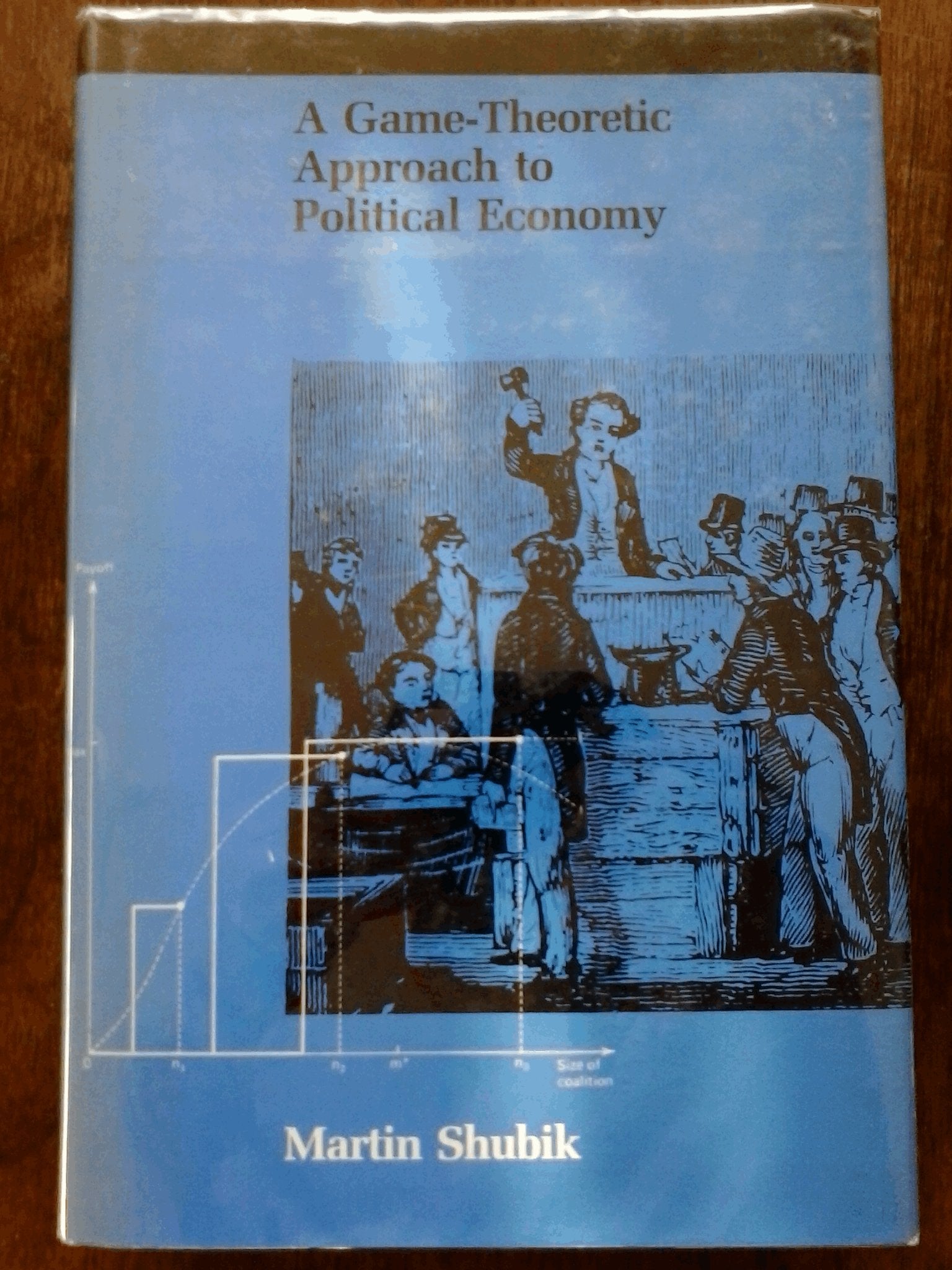
Title

A Gametheoretic Approach To Political Economy: Volume 2 Of Game Theory In The Social Sciences,Used
Processing time: 1-3 days
US Orders Ships in: 3-5 days
International Orders Ships in: 8-12 days
Return Policy: 15-days return on defective items
This Companion Volume To Shubiks Masterful 'Game Theory In The Social Sciences 'Sketches A Unification Of Several Branches Of Political Economy On The Basis Of The Theory Of Games. In Five Parts It Covers Basic Factors That Make Economic Decision Making Different From Properties Of Economic Goods, Money, And Wealth Static, Onesided, Open Model Of Oligopolistic Competition; Cooperative Models Of Closed Economic Systems; Strategic Models Of Closed Economic Systems, And Externalities And Public Goods. This Final Section Explores A Number Of Applications, Including Land Ownership, Voting, And The Assignment Of Joint Costs. The Book Concludes With An Outline Of A Series Of Games Within A Game As A Portrayal Of A Politicoeconomic Process In A Democratic Society With A Twoparty System And Public And Private Sectors. The Approach Adopted Points The Way Toward A Possible Reconciliation Of Microand Macroeconomics And An Integration Of Economic, Political, And Sociological Descriptions In The Study Of The Shortterm Function Of The State. Martin Shubik Is Seymour H. Knox Professor Of Mathematical Institutional Economics At Yale University.
⚠️ WARNING (California Proposition 65):
This product may contain chemicals known to the State of California to cause cancer, birth defects, or other reproductive harm.
For more information, please visit www.P65Warnings.ca.gov.
- Q: What is the main focus of 'A Game-Theoretic Approach to Political Economy'? A: The book focuses on unifying various branches of political economy through the theory of games, exploring the differences in economic decision-making and applications in areas like land ownership and voting.
- Q: Who is the author of this book? A: The author is Martin Shubik, who is the Seymour H. Knox Professor of Mathematical Institutional Economics at Yale University.
- Q: How many pages does this book have? A: This book contains 744 pages.
- Q: What type of binding does this book have? A: The book is bound in hardcover.
- Q: When was this book published? A: The book was published on January 1, 1985.
- Q: What condition is the book in? A: The book is in 'Very Good' condition.
- Q: Is there a specific edition of the book? A: Yes, this book is marked as edition '0'.
- Q: What are some key topics covered in the book? A: Key topics include oligopolistic competition, cooperative models, strategic models, externalities, public goods, and applications in political economy.
- Q: Does the book provide real-world applications of game theory? A: Yes, it explores real-world applications such as land ownership, voting, and joint cost assignments.
- Q: What is the significance of the game's within a game concept discussed in the book? A: This concept portrays a politico-economic process in a democratic society, particularly in a two-party system and the interaction between public and private sectors.

